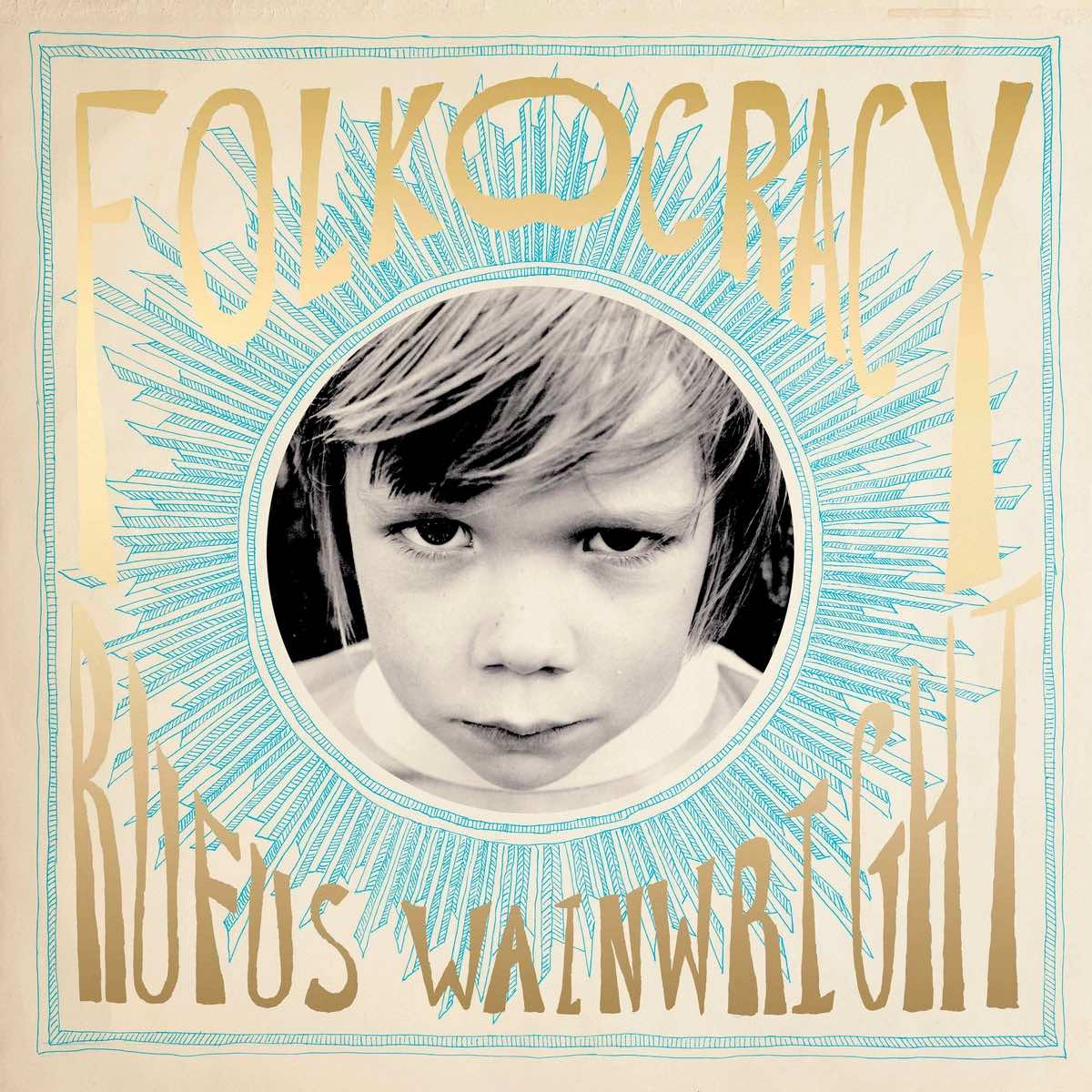Rufus Wainwright
Folkocracy
BMG
Rather than think of Folkocracy’s multitude of vocal pairings (or triplings) as Rufus Wainwright’s shot at the corny “duets album” trend, look at it as aptly communal, a sharing of sociopolitics, human interest rhetoric, and poetic Earth-first feelings in line with the songwriter’s heritage—a mother and aunt in The McGarrigle Sisters, a father in Loudon Wainwright III. Extend that knowing, literary lineage to the grandfather of his child, Leonard Cohen, and Rufus Wainwright’s folk cred and communal concern is untouchable.
Produced by Mitchell Froom to sound more like a Rufus Wainwright album than say, “Foggy Mountain Breakdown,” Folkocracy is a cosmopolitan take on full-blooded earthen classics such as songwriter John “Mamas & Papas” Phillips’ “Twelve-Thirty,” only with Susanna Hoffs, Chris Stills, and Sheryl Crow winding their harmonies around Wainwright’s wriggly oboe-like croon. Or the British Isle lament of Peggy Seeger’s “Heading for Home” re-envisioned for rustic neo-soul and duet partner John Legend. Or found-sound urbanite Moondog’s “High on a Rocky Ledge” with David Byrne pulling up the rear of vocal quirk.
And while big-name guests such as Brandi Carlile, Chaka Khan, and even The Pussycat Dolls’ Nicole Scherzinger get their shots at hanging out with an effortlessly artful Rufus, it’s Wainwright’s own haunting LGBTQ plea “Going to a Town” (with a luminous ANOHNI), a handful of folk traditionals recorded with his sisters and aunt, and arranger-songwriter Van Dyke Parks’ “Black Gold”—a pairing that finds the singer going full-circle to his first album’s prime motivator—that are most touchingly poignant in a personal and a communal fashion.







